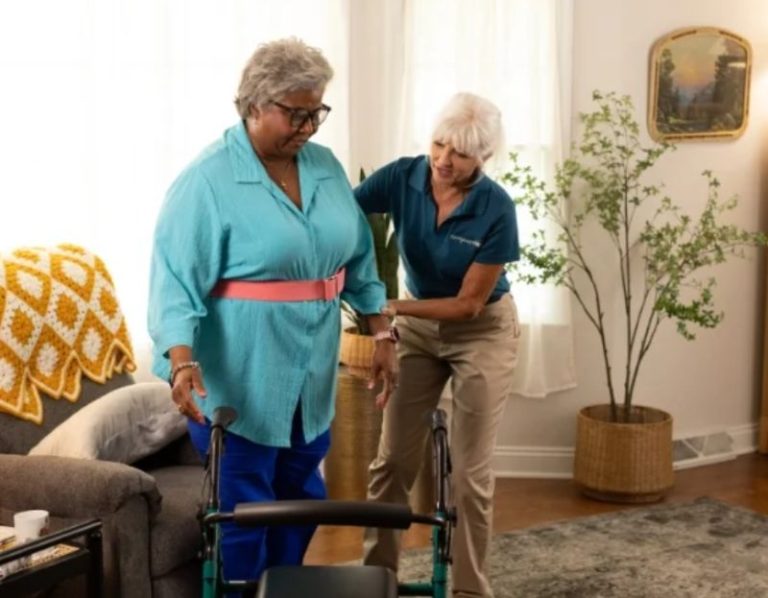

You may be searching for proper care options for yourself or a family member who faces mental health or addiction challenges.
The process of exploring treatment options can seem daunting because of its complexity. The range of treatment options is vast with options extending from complete hospitalization to weekly therapy sessions so finding the best fit for your specific needs can be complicated.
The good news?
Intensive outpatient programs (IOPs) present an effective middle-ground treatment option which remains underestimated by most people.
This guide will walk you through everything you need to know about IOPs, including how they work, who they’re best for, and what to expect if you’re considering an intensive outpatient program in NJ or elsewhere..
Inside This Guide:
- What Exactly Is an Intensive Outpatient Program?
- Who Benefits Most from IOPs?
- What to Expect During Treatment
- IOP vs. Other Treatment Options
- Finding the Right Program
What Exactly Is an Intensive Outpatient Program?
An intensive outpatient program delivers structured treatment which does not include overnight facility stays.
IOPs serve as a transitional treatment option between full hospitalization and regular outpatient therapy. These programs deliver enhanced support beyond weekly therapy sessions while enabling you to keep managing your regular home, work, or school duties.
Here’s what makes IOPs unique:
- Most IOP programs require a weekly time commitment of 9-12 hours which usually takes place over 3-5 days.
- The treatment occurs at a facility but patients return to their homes daily.
- The program duration typically runs from 8 to 12 weeks but can change according to individual requirements.
- The treatment approach includes group sessions along with individual counseling and specialized therapeutic methods.
IOPs provide care and enable daily practice of new skills within your real-life environment.
In January 2024 Medicare expanded its coverage to intensive outpatient program services to fill existing gaps in mental health and substance use treatment.
Who Benefits Most from IOPs?
Intensive outpatient programs address diverse patient needs but they work best in specific circumstances.
Ideal Candidates for IOP Treatment:
- Step-Down Care refers to patients who move from inpatient treatment but need continuous support.
- People who need additional therapy beyond standard outpatient treatment should seek step-up care.
- IOPs are ideal for people who need continual work and family participation during treatment.
- People who live in homes that provide support while remaining free from substances
- Medical Stability means clients who do not need continuous medical supervision throughout the day.
IOPs are commonly used to treat:
- Substance use disorders
- Depression and anxiety
- Bipolar disorder
- Eating disorders
- PTSD and trauma-related conditions
What to Expect During Treatment
When thinking about joining an IOP program you may be curious about what it feels like to participate. Most programs follow a similar structure:
The IOP Experience:
- Initial Assessment: Your needs assessment includes a detailed review of your history and future objectives.
- Customized Treatment Plan: Development of your roadmap for recovery
- Group Therapy: The fundamental part of the program concentrates on developing skills while providing support.
- Individual Therapy: One-on-one sessions to address specific challenges
- Specialized Treatments: May include CBT, DBT, or family therapy
- Progress Evaluations: To adjust your treatment plan as needed
- Aftercare Planning: Preparation for continuing care after completion
Patients attending an IOP generally participate in a check-in group followed by a topic group such as relapse prevention and conclude with a skills-building session.
The mental health sector is increasingly adopting intensive outpatient programs which deliver organized treatment for patients moving from inpatient care or advancing from standard outpatient therapy.
IOP vs. Other Treatment Options
To understand if an IOP is right for you, it helps to see how it compares to other levels of care:
| Treatment Type | Time Commitment | Living Arrangement | Best For |
| Inpatient | 24/7 for weeks/months | At facility | Severe conditions, unsafe home environment |
| Partial Hospitalization | 4-6 hours daily, 5 days/week | At home | Need for daily structure |
| Intensive Outpatient | 3-4 hours, 3-5 days/week | At home | Moderate symptoms, work commitments |
| Standard Outpatient | 1-2 hours, 1-2 times/week | At home | Mild symptoms, aftercare |
The treatment continuum isn’t always linear. Some people start with an IOP, while others may move from more intensive care to an IOP as they progress.
Finding the Right Program
Different IOP programs exist and selecting the appropriate match plays a vital role in achieving success. Here’s what to look for:
Key Factors in Choosing an IOP:
- Specialization: Programs focusing on your specific condition
- Evidence-Based Approaches: Treatments proven effective through research
- Qualified Staff: Credentials, experience, and expertise
- Accreditation: Recognition from respected healthcare organizations
- Schedule Options: Times that work with your other commitments
- Location: Convenience for regular attendance
Always feel free to ask questions during your program research process.
- What’s your approach to treatment?
- What’s the typical group size?
- How do you handle co-occurring disorders?
- What’s your success rate?
Insurance and Payment Considerations
Knowing the financial details of IOP treatment remains a necessary practical aspect.
Coverage and Costs:
- Insurance: Most private insurance plans cover IOPs, though coverage varies
- Medicare/Medicaid: Coverage has expanded for these programs
- Out-of-Pocket Costs: Can range widely, typically $3,000-$10,000 for a full program
- Payment Plans: Many facilities offer financing options
Confirm your insurance details and clarify what services the plan covers and what expenses you need to pay before signing up.
The Mental Health Parity and Addiction Equity Act mandates insurance providers to offer the same level of coverage for mental health as they do for medical conditions which has enhanced access to IOP services.
Success Rates and Effectiveness
Before deciding to dedicate time and financial resources to an IOP you might be asking yourself whether these programs achieve their intended results.
Eight out of ten patients experience an improved quality of life following treatment and many stay drug-free afterwards.
Factors Affecting IOP Success:
- Program Completion: Those who finish the full program have better outcomes
- Continued Care: Following through with aftercare recommendations
- Support System: Having supportive family and friends
Studies indicate that intensive outpatient programs deliver similar results to inpatient treatment for numerous patients when their needs align well with program services.
Wrapping It All Up
Intensive outpatient programs serve as essential components in addressing the needs of mental health and addiction recovery services. Intensive outpatient programs deliver support which lets people continue their regular activities and serve as an optimal choice for those who need more than weekly therapy but don’t require round-the-clock care.
Intensive outpatient programs should be considered when selecting treatment options for yourself or someone you care about.
- Traditional outpatient care fails to provide you with the level of support you need.
- You must maintain your professional and family responsibilities during treatment sessions.
- You have a stable living environment
- You’re motivated to participate in recovery
Asking for help shows strength rather than weakness. Reaching out for proper treatment represents a powerful step toward recovery whether an IOP marks your first treatment step or continues your recovery journey.


